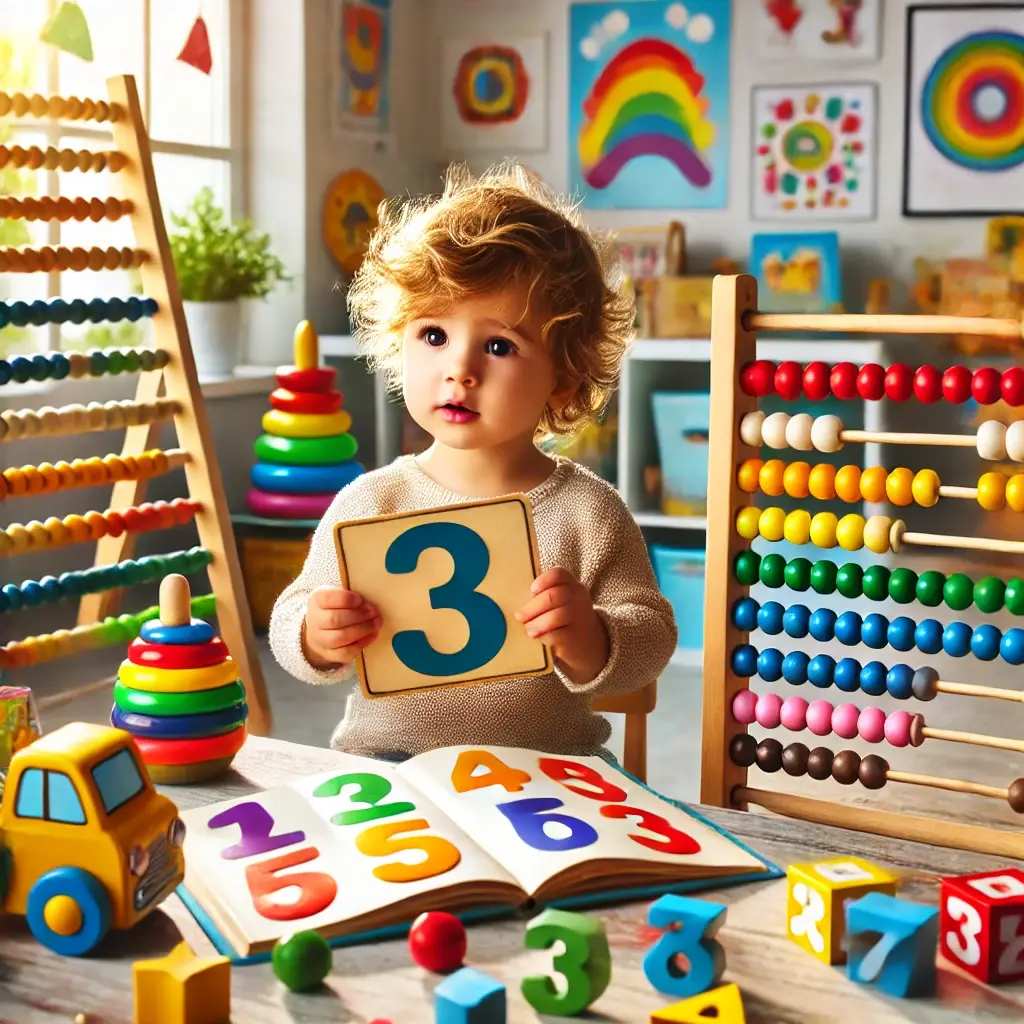
The beginning of a child’s schooling life is significant as it marks the start of many academic years of learning. From the time your child starts their very first day of school until their last, they will develop in many ways beyond just physical growth. Your child will also grow internally as they attend school, including intellectually, cognitively, emotionally, and socially.
In this blog, the popular question of the typical starting age of a preschooler, kindergartener, and first grader will be answered. Furthermore, the vital benefits of preschool, kindergarten, and first grade will be discussed, and how you can prepare your child for each of these stages in their school learning journey. Also, additional ways for your child to become first-grade-ready are given to ensure they are equipped for the start of elementary school.
Moreover, information is provided regarding the states in the U.S. including whether they mandate kindergarten or not, as well as their obligatory starting age of school. Likewise, later in the blog, the age that which school is required by law in countries other than the United States is provided to raise awareness of global schooling.
Lastly, we introduce how Genie Academy can assist your child in sharpening the skills necessary for preschool, kindergarten, the first grade, or the grades beyond, and even help your child not only get ahead in their learning but excel incredibly.
What is the Right Age For a 1st Grader?
First grade is an exciting time for parents and children as it marks the beginning of elementary school. While first grade is exciting, it is also vital to a child’s learning since it paves the way for the rest of a child’s schooling in elementary school. Keeping this all in mind, one of the most common questions is the typical age of a first grader.
So what is the right age for first grade? Even though it is important to check your school district, the most common age of a first grader is six years old. Once a child turns six years old and has finished kindergarten, the parents/guardians can enroll their child for the upcoming school year before the cut-off date listed for their chosen district school.
Benefits of First Grade
The first grade fosters many skills in children as it strengthens their brains while they are internally developing. Furthermore, the first grade allows children to grow their sense of self and become more aware of others. This time in a child’s life likewise positively challenges them to become more independent inside and outside the classroom and be able to take on responsibilities. First grade is truly the foundational building block that sets up a child’s learning pyramid.
Become First-Grade Ready
Learning Based Activities
A great way to prepare your child for the first grade and assist them in learning the specific skills they need when starting this chapter is to enhance their play with learning activities that not only help to develop their intellectual abilities but also increase their wonder and fascination. Therefore, these learning-based activities will assist them in their education in the first grade and reveal to parents the types of learning activities they tend to gravitate toward.
Benefits of Learning-Based Activities
There are unlimited learning-based activities that can help your child acquire new knowledge while likewise being engaged and having fun.
- Constant practice and repetition of a learning-based activity can help a child in various ways.
- Critical thinking
- Problem-solving
- Creativity
- Social skills
For instance, parents can focus on basic math concepts like addition and subtraction, by having their children count their toys as they play or enhance their imagination by having them perform hands-on creative play like arts and crafts.
Independence and Repetition
Also, it is important to allow your child to discover how to play and do simple acts on their own that pertain to their daily schedule.
Examples:
- Getting up in the morning
- Brushing their teeth
- Getting dressed
- Going to bed at the proper time on their own
The reason for encouraging your child to perform tasks such as these on their own is to increase their independence. Having some basic independence is needed for entering the first grade.
Although the establishment of basic independence can be difficult to completely instill and advance while they are approaching six years old, it is not impossible.
- With continuous repetition from parent to child, your child will be able to perform basic daily activities on their own.
Daily Reading
Besides stimulating independence, you can help your child become ready for elementary school by instilling the habit of daily reading at a time that works best for you and your child.
While reading:
- Sound out the words
- Point at the illustrations
- Answer any of their questions about the narrative along the way
- Make the story come alive
- At the end summarize what you read
How will these actions help?
- Each of these actions will allow your child to become interested in reading
- Understand the storyline
- What the words sound like and mean in the context of the story
- How the illustrations connect to the text
- Also, it will teach your child early reading comprehension and thought formation (vital concepts in first grade)
Language and Words
Lastly, it is important to drive home the basic stage of language development and sentence comprehension with reading.
- Have your child write some of the words you and your child are reading together.
- Assist them with either copying the chosen word from the page and writing it a few times or saying the word out loud to them followed by them sounding it out and writing it down.
These exercises can even be paired with learning the basic definition and use of the words they are practicing how to write. Overall, practicing reading and writing with your child will provide them with the necessary introduction to these critical skills for the first grade.
What is the Typical Age For a Kindergartener?
In most states in the United States, kindergarten is mandatory and builds the primary foundation for a child’s education. Kindergarten is a critical time for a child’s learning as it prepares them for the start of their elementary school education. The common age of a kindergartner in the U.S. is five years old and five is the age that most states require for kindergarten enrollment.
Despite this, it is important to check your state's age requirements for kindergarten since some schools allow children between four and six years old to begin kindergarten. When your child reaches the correct age of a kindergartner, before the start of the academic school year in your district, it is time to enroll them in the particular school of your choosing.
Kindergarten and Required School in the United States
Since kindergarten is typically known as the start of primary school in the U.S., the common time for children to start school in some states is kindergarten. While some states mandate kindergarten, other states do not require kindergarten or they leave it up to the state’s districts. So, what states require kindergarten? Lastly, what is the required age by law to start school in the different states in the U.S.?
| State | Require Kindergarten? | Compulsory education age: |
| Alabama | No | 7 |
| Alaska | No | 7 |
| Arizona | No | 6 |
| Arkansas | Yes | 5 |
| California | No | 6 |
| Colorado | No | 6 |
| Connecticut | No | 5 |
| Delaware | Yes | 5 |
| District of Columbia | Yes | 5 |
| Florida | No | 6 |
| Georgia | No | 6 |
| Hawaii | Yes | 5 |
| Idaho | No | 7 |
| Illinois | No | 7 |
| Indiana | No | 7 |
| Iowa | No | 6 |
| Kansas | No | 7 |
| Kentucky | No | 6 |
| Louisiana | Yes | 5 |
| Maine | No | 7 |
| Maryland | Yes | 5 |
| Massachusetts | No | 6 |
| Michigan | No | 6 |
| Minnesota | No | 7 |
| Mississippi | No | 6 |
| Missouri | No | 7 |
| Montana | No | 7 |
| Nebraska | No | 6 |
| Nevada | Yes (kindergarten mandatory before first grade) | 6 |
| New Hampshire | No | 6 |
| New Jersey | No, but in specific districts (Abbott Districts) Kindergarten is mandatory. | 6 |
| New Mexico | Yes | 5 |
| New York | No | 6 |
| North Carolina | No | 7 |
| North Dakota | No | 7 |
| Ohio | Yes (kindergarten mandatory before first grade) | 6 |
| Oklahoma | Yes (minimum half day) | 5 |
| Oregon | No | 7 |
| Pennsylvania | No | 8 |
| Rhode Island | Yes | 5 |
| South Carolina | Yes | 5 |
| South Dakota | Yes (if 5 years old can attend kindergarten) | 6 |
| Tennessee | Yes (if 5 years old must attend kindergarten before first grade) | 6 |
| Texas | No | 6 |
| Utah | No | 6 |
| Vermont | No | 6 |
| Virginia | Yes | 5 |
| Washington | No | 8 |
| West Virginia Yes | Yes (at 5 years can begin kindergarten) | 6 |
| Wisconsin | Yes, in the districts that offer kindergarten. (can be 4 or 5 years old depending on birthday) | 6 |
| Wyoming | Yes, but only requires kindergarten by age seven. (can be 5 or 6 and enter kindergarten) | 7 |
Benefits of Kindergarten
Kindergarten comes with many benefits for your child and their academic learning journey. The life chapter of kindergarten is meant to help your child assemble a strong foundation of knowledge and vital skills so they can not only excel during their time as a kindergarten student but be ready to go come the first day of the first grade. Kindergarten is known to be an important stepping stone for the rest of their schooling.
There are various skills that your child will learn in kindergarten including social, cognitive, motor, and emotional skills as well as skills revolving around specific subjects like reading, math, science, and social studies.
Prepare for Kindergarten
The time leading up to kindergarten can be a happy yet nervous time for your child. Still, by developing familiarity with them for what is to come, your child can become more at ease with the thought of being a kindergartner–whether they attended preschool or not.
How to prepare your child for kindergarten?
- Educate your child on what it means to be responsible and independent then demonstrate these two valuable skills to them through daily activities.
- Have them take on responsibility and practice being independent at home.
- Make a routine with your child. Show them daily activities and then let them try them on their own including brushing their teeth, getting dressed, cleaning up after themselves, and using the bathroom.
- Routines help your child stay on task during the day and grow independently.
- Developing a routine for your child to learn, will also help them understand what it means to follow tasks during the kindergarten school day.
- Practice reading with your child and engage them with the text. Read stories aloud, have them repeat words after you, sound words out on the pages, describe the illustrations, and explain the basic storyline and characters at the end.
- Show them and assist them with practicing how to hold and use writing utensils, scissors, glue sticks, colored pencils, crayons, etc.
- Demonstrate how to write their name, age, birthday, etc., and have them repeatedly practice writing each.
- Help them learn and become familiar with the alphabet and numbers.
- Play alphabet letter and number games with your child, read and show them books that teach letters and numbers, and use flashcards to enhance their memory.
- Play alphabet letter and number games with your child, read and show them books that teach letters and numbers, and use flashcards to enhance their memory.
- Help them learn and be able to identify with books, workbooks, games, and flashcards:
- Colors, shapes, sounds of vowels and consonants, how to say letters of the alphabet and numbers 0-10, some rhyming words, basic sight words, basic parts of the body, everyday objects, days of the week, months of the year, basic telling time, etc.
- Make a plan with your child for dropping off and picking them up from kindergarten. This plan will help them develop a school routine and reassure them that you will be there for them at the end of the school day.
What is the Starting Age For a Preschooler?
Preschool offers children a chance to get a headstart with school and learn the basic necessary skills for kindergarten. The time of preschool, or pre-kindergarten, is meant to occur a year before kindergarten. While preschool is recommended for children, it is not mandatory. The general starting age for a preschooler is between two and four years old, with many students either being four or five years old depending on the child.
Benefits of Preschool
Enrolling your child in preschool is a great way to prepare them not only for the critical schooling chapter of kindergarten but for the rest of the learning that is to come in their journey as a student.
- Preschool aids children in their internal and self-development by strengthing their confidence.
- Confidence builds their independence as they become comfortable with themselves and how they individually learn.
- Confidence building from preschool also allows them to discover what subjects and activities appeal to them, and enhance their imagination and curiosity.
Furthermore, preschool helps to mold and stimulate a child’s brain by teaching them specific academic, social, and motor skills. Although these skills will not be 100% formed by the end of preschool, children will initiate to evolve these skills that will evolve over time.
The Classroom Environment
In preschool, children are introduced to an environment that they have not been exposed to prior. Depending on the school, a typical preschool class can be a half day that is about three to four hours, or a full day that is normally six and a half hours.
Whether a child is enrolled in a half or full-day, the student will be introduced to school and how it works. A classroom setting with a teacher and other children their age or around their age is what preschool aims to get children warmed up to before the time of kindergarten. In kindergarten, the teacher-to-student ratio increases so preschool provides children with an introduction to what a classroom environment looks and feels like. As they attend their preschool classes, the repetition of those classes assists them with gaining comfort with school.
Prepare for Preschool
Before enrolling your child in preschool, you can begin to prepare them for the classroom and going to school for the very first time.
Here are some ways that you can prepare your soon-to-be preschooler:
- Play pretend school at home to introduce your child to what may happen during a typical preschool class and help them understand the idea of preschool.
- If possible, set up a time, with the preschool of your choice, to see the school building and classroom with your child to help them warm up to the place before school starts.
- Practice daily activities and routines with your child to increase familiarity with important actions they’ll need to know for school such as carrying and hanging their backpack, using the restroom on their own, and raising their hand with a question or answer.
- Ask them how they feel about going to preschool soon and help them understand that it is completely normal for them to feel the way they do.
- To also get them prepared for the first day of school set up a plan of how you and your child will depart when dropping them off, and tell them that you will always be back at the end of the school day.
Compulsory Age of School in Other Countries
While some countries require children to begin school at an earlier age like the U.S., other countries mandate different ages.
- In Canada, students are mandated to begin school at age six.
- In Australia, students are required to start primary school at age six. They can begin school earlier than six if desired but it is not mandatory then.
- The country of Sweden starts school at age six and the start of school is called elementary school.
- Italy’s required age for the start of school is age six.
- Germany mandates children to start school at age six.
- In China, primary school begins at age six. Some areas in China require the age of seven.
- New Zealand requires children that are at the age of six to begin school, but children can begin at age five if desired–although at this age it is not required.
- Russia requires children to begin primary school at the age of six or seven.
- South Africa requires children to begin school at age seven. The first mandatory year of school at age seven is called grade one. Children can attend grade zero, or reception school, earlier but it is not obligatory.
- Egypt requires students to begin primary education at age six.
- In France, children start a pre-primary education as early as age two or three and primary school typically by the age of six.
- In Spain, six is the compulsory age for beginning school.
- Age six is the required age for children to begin school in the Middle East.
- Finland requires students to begin primary school at the age of seven. Before primary school children can go to preschool or pre-primary school at age six.
- Northern Ireland mandates the start of school, primary school, as early as four years and two months of age.
- India mandates the start of school at age six.
- The country of Japan requires children to begin their school education at age six.
- The United Kingdom requires children to begin school at age five.
- South Korea has children begin school at the age of six.
Genie Academy Can Help
Does your child need extra help honing the skills necessary for preschool, kindergarten, or the first grade, or would you like your child to get ahead in their learning? Genie Academy can surely help!
Here at Genie Academy, we offer math, reading, writing, and coding classes. Every child learns differently and has their own strategies when it comes to taking in information, comprehending new concepts, and applying what they learned. At Genie Academy, we always tailor to your child’s individual learning needs.
Interested in enrolling your child in Genie Academy? You can receive a free assessment of your child today. During this assessment, we test your child based on their current grade, and assess the topics they know and don’t know. These assessments are comprised of the topics that your child should have been taught thus far depending on their grade level in school.
But you must know, it is not your or your child’s fault if they have weak spots in their learning–the U.S. education system is to blame. The entire system is overburdened, but here at Genie Academy, we strive to help every child who has been affected and who has fallen behind in their studies as a result of the overwhelmed American educational system.
After receiving the results from your child’s assessment, you can decide if you believe Genie Academy is the best fit for your child. If so, the exciting enrollment process begins and your child will be a part of the numerous students of Genie Academy!
We offer both in-person and online classes. Our locations include East Brunswick, Hillsborough, Marlboro, South Brunswick, Plainsboro, and South Plainfield, New Jersey.
Learn more about us, our core values, our philosophy, our numerous success stories, and our history. Also, read our reviews and testimonials and the true benefits of Genie Academy.






